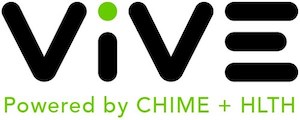 You may have missed or not understood the implications of this press release. Here's a guest post from Micky Tripathi, the CEO of the Massachusetts eHealth Collaborative that explains everything you need to know: "This summary provides some additional information on the recently announced interoperability agreement between CommonWell and The Sequoia Project (Carequality). For full disclosure, I am on the Board of Directors of The Sequoia Project, a contractor to CommonWell, and participated in the discussions leading to the agreement. The description below does not necessarily reflect the views of either of these organizations or any of the named vendors...
You may have missed or not understood the implications of this press release. Here's a guest post from Micky Tripathi, the CEO of the Massachusetts eHealth Collaborative that explains everything you need to know: "This summary provides some additional information on the recently announced interoperability agreement between CommonWell and The Sequoia Project (Carequality). For full disclosure, I am on the Board of Directors of The Sequoia Project, a contractor to CommonWell, and participated in the discussions leading to the agreement. The description below does not necessarily reflect the views of either of these organizations or any of the named vendors...
Meditech
See the following -
23% Of Providers Use Epic, But VA EHR Is Tops For Satisfaction
Nearly a quarter of physician providers with an EHR are currently using Epic Systems, according to data from the 2014 Medscape EHR Report, but the wildly popular interface doesn’t get anywhere near the highest marks for user satisfaction. That honor goes to the VA-CPRS, the EHR used by the beleaguered Department of Veterans Affairs, with Epic left languishing in seventh place behind several of its most significant competitors...
- Login to post comments
Accessing & Using APIs from Major EMR Vendors–Some Data at Last!
 Information blocking, Siloed data. No real inter-operability. Standards that aren’t standards. In the last few years, the clamor about the problems accessing personal health data has grown as the use of electronic medical records (EMRs) increased post the Federally-funded HITECH program. But at Health 2.0 where we focus on newer health tech startups using SMAC (Social/Sensor; Mobile OS; Cloud; Analytics) technologies, the common complaint we’ve heard has been that the legacy–usually client-server based–EMR vendors won’t let the newer vendors integrate with them...
Information blocking, Siloed data. No real inter-operability. Standards that aren’t standards. In the last few years, the clamor about the problems accessing personal health data has grown as the use of electronic medical records (EMRs) increased post the Federally-funded HITECH program. But at Health 2.0 where we focus on newer health tech startups using SMAC (Social/Sensor; Mobile OS; Cloud; Analytics) technologies, the common complaint we’ve heard has been that the legacy–usually client-server based–EMR vendors won’t let the newer vendors integrate with them...
- Login to post comments
AMIA’s Doug Fridsma: Time for the Feds to Truly Open Up Patient Records to Fully Interoperable Data Use
 Access to information and the ability to integrate and use information has changed how individuals book travel, find information about prices and products, and compare and review services. Information can empower individuals, but health care has lagged behind other fields. It is unconscionable that in 2016 most patients are unable to obtain their entire medical record unless they print it out. While progress has been made in the last several years to support patients’ access to their information through various electronic means, such as Blue Button and patient portals, this is not sufficient to make patients first-order participants in their care, their health and their research efforts...
Access to information and the ability to integrate and use information has changed how individuals book travel, find information about prices and products, and compare and review services. Information can empower individuals, but health care has lagged behind other fields. It is unconscionable that in 2016 most patients are unable to obtain their entire medical record unless they print it out. While progress has been made in the last several years to support patients’ access to their information through various electronic means, such as Blue Button and patient portals, this is not sufficient to make patients first-order participants in their care, their health and their research efforts...
- Login to post comments
Black Book: Tech Support from EHR Vendors Essential as Many Hospital Clients Vent Frustrations
Electronic health record vendors that don't offer robust customer technical support services risk losing established clients and new customers, according to a new report from Black Book Market Research that found that one-third of hospitals surveyed are currently unhappy with their IT support...
- Login to post comments
Can Open Source EHRs Offer a New Path for Health IT Usability?
 In an article published in JMIR Medical Informatics, researchers from the University of California-Davis decided to explore the small but intriguing world of open source EHRs, which may fit very neatly into the growing interest in application programming interfaces, FHIR, and other open data standards that encourage customized mix-and-match health IT development without the historical pitfalls of proprietary systems. Using data from 2014, the researchers identified 54 open source projects that met the HHS definition of an electronic health record. At the time, four of those packages had achieved Certified EHR Technology status from the ONC.
In an article published in JMIR Medical Informatics, researchers from the University of California-Davis decided to explore the small but intriguing world of open source EHRs, which may fit very neatly into the growing interest in application programming interfaces, FHIR, and other open data standards that encourage customized mix-and-match health IT development without the historical pitfalls of proprietary systems. Using data from 2014, the researchers identified 54 open source projects that met the HHS definition of an electronic health record. At the time, four of those packages had achieved Certified EHR Technology status from the ONC.
- Login to post comments
CAV Systems to participate in HIMSS MarketConnect
 Uri Schor, Chief Technology Officer of CAV Systems Ltd, a leading enterprise software company from Israel, will be attending the HIMSS 2019 Global Conference & Exhibition, February 11 – 15, 2019 in Orlando, Florida. CAV Systems will be participating in MarketConnect, a matchmaking platform created as a collaboration between HIMSS and the Health 2.0 Innovation Team. MarketConnect is designed to break down the barriers of tech adoption within large health systems by directly connecting today’s leading tech companies with pre-qualified executives interested in commercial partnerships.
Uri Schor, Chief Technology Officer of CAV Systems Ltd, a leading enterprise software company from Israel, will be attending the HIMSS 2019 Global Conference & Exhibition, February 11 – 15, 2019 in Orlando, Florida. CAV Systems will be participating in MarketConnect, a matchmaking platform created as a collaboration between HIMSS and the Health 2.0 Innovation Team. MarketConnect is designed to break down the barriers of tech adoption within large health systems by directly connecting today’s leading tech companies with pre-qualified executives interested in commercial partnerships.
- Login to post comments
CHIME And HLTH Announce Launch Of ViVE, The New Digital Health Industry Event
 The College of Healthcare Information Management Executives (CHIME), the professional organization for chief information officers and other senior healthcare IT leaders, together with HLTH, the leading platform bringing together the entire health ecosystem, focused on digital health innovation and transformation, announced today the launch of a new annual industry event: ViVE. The inaugural ViVE event will take place March 6-9, 2022 in Miami Beach, launching with significant support from title sponsors and event supportersViVE will provide a fresh, curated education and networking experience for digital health leaders, disruptors and influencers...
The College of Healthcare Information Management Executives (CHIME), the professional organization for chief information officers and other senior healthcare IT leaders, together with HLTH, the leading platform bringing together the entire health ecosystem, focused on digital health innovation and transformation, announced today the launch of a new annual industry event: ViVE. The inaugural ViVE event will take place March 6-9, 2022 in Miami Beach, launching with significant support from title sponsors and event supportersViVE will provide a fresh, curated education and networking experience for digital health leaders, disruptors and influencers...
- Login to post comments
Creating Beth Israel's FY16 Information Systems Strategic Plan
 I recently wrote about the process of setting FY16 Clinical Information System Priorities for the next year. That project is proceeding well and in parallel I’ve created my own contribution. I do not want to influence the stakeholder consensus at all, but members of the IS Governance committee asked for my opinion. Here’s my thinking...Each year, Beth Israel Deaconess Medical Center (BIDMC) Information Systems works with business owners to support BIDMC annual goals with information technology tactics. This ensures that the mission of BIDMC is supported by suitable operational tools. From 2012-2015, all hospitals in the US were compelled to focus their attention on Meaningful Use, ICD-10, the HIPAA Omnibus Rule, and the Affordable Care Act. Since those projects are nearly completed, it is important for BIDMC stakeholders to enumerate the new technology priorities which will best support their activities in the coming year. Read More »
I recently wrote about the process of setting FY16 Clinical Information System Priorities for the next year. That project is proceeding well and in parallel I’ve created my own contribution. I do not want to influence the stakeholder consensus at all, but members of the IS Governance committee asked for my opinion. Here’s my thinking...Each year, Beth Israel Deaconess Medical Center (BIDMC) Information Systems works with business owners to support BIDMC annual goals with information technology tactics. This ensures that the mission of BIDMC is supported by suitable operational tools. From 2012-2015, all hospitals in the US were compelled to focus their attention on Meaningful Use, ICD-10, the HIPAA Omnibus Rule, and the Affordable Care Act. Since those projects are nearly completed, it is important for BIDMC stakeholders to enumerate the new technology priorities which will best support their activities in the coming year. Read More »
- Login to post comments
EHR Usability, Functionality Top Concerns for Half of Hospitals
Community hospitals continue to struggle to get their electronic health records to work and communicate the way they need them to, according to a new report from peer60, with EHR usability, limited functionality, and poor interoperability driving nearly 20 percent of survey respondents into a search for a replacement EHR...
- Login to post comments
Halamka Discusses Three Disruptive Care Coordination Innovations In Use at Beth Israel
 Would you buy an iPhone if the only apps that ran on it were written by Apple? Maybe, but the functionality would not be very diverse. The same can be said of EHRs. Athena, Cerner, Epic, Meditech, and self developed EHRs such as BIDMC’s webOMR are purpose-built transaction engines for capturing data. However, it is impossible for any single vendor to provide all the innovation required by the marketplace to support new models of care I’m a strong believer in the concept of third party modules that layer on top of traditional EHRs in the same way that apps run in the iPhone ecosystem...
Would you buy an iPhone if the only apps that ran on it were written by Apple? Maybe, but the functionality would not be very diverse. The same can be said of EHRs. Athena, Cerner, Epic, Meditech, and self developed EHRs such as BIDMC’s webOMR are purpose-built transaction engines for capturing data. However, it is impossible for any single vendor to provide all the innovation required by the marketplace to support new models of care I’m a strong believer in the concept of third party modules that layer on top of traditional EHRs in the same way that apps run in the iPhone ecosystem...
- Login to post comments
Halamka Explains Background to athenahealth/BIDMC Collaboration
 BIDMC and athenahealth announced a new and unique collaboration. The collaboration between the two organizations provides athenahealth the chance to take BIDMC’s experience to a much larger audience, hopefully making a difference to providers, patients, and payers across the country. athenahealth will also accelerate its ability to develop expanded functionality more rapidly than doing it alone. Read More »
BIDMC and athenahealth announced a new and unique collaboration. The collaboration between the two organizations provides athenahealth the chance to take BIDMC’s experience to a much larger audience, hopefully making a difference to providers, patients, and payers across the country. athenahealth will also accelerate its ability to develop expanded functionality more rapidly than doing it alone. Read More »
- Login to post comments
Halamka on the Most Important Interoperability Story of 2016
- Login to post comments
Halamka on What's Next for Electronic Health Records
 With the Department of Justice announcement of the $155 million dollar eClinicalWorks settlement (including personal liability for the CEO, CMO and COO), many stakeholders are wondering what’s next for EHRs. Clearly the industry is in a state of transition. eCW will be distracted by its 5 year corporate integrity agreement. AthenaHealth will have to focus on the activist investors at Elliott Management who now own 10% of the company and have a track record of changing management/preparing companies for sale. As mergers and acquisitions result in more enterprise solutions, Epic (and to some extent Cerner) will displace other vendors in large healthcare systems. However, the ongoing operational cost of these enterprise solutions will cause many to re-examine alternatives such as Meditech...
With the Department of Justice announcement of the $155 million dollar eClinicalWorks settlement (including personal liability for the CEO, CMO and COO), many stakeholders are wondering what’s next for EHRs. Clearly the industry is in a state of transition. eCW will be distracted by its 5 year corporate integrity agreement. AthenaHealth will have to focus on the activist investors at Elliott Management who now own 10% of the company and have a track record of changing management/preparing companies for sale. As mergers and acquisitions result in more enterprise solutions, Epic (and to some extent Cerner) will displace other vendors in large healthcare systems. However, the ongoing operational cost of these enterprise solutions will cause many to re-examine alternatives such as Meditech...
- Login to post comments
Halamka Outlines the Pillars of Beth Israel's IT Strategic Plan
 Communicating the IT strategic plan is one of the primary responsibilities of a CIO. Most importantly, the IT strategic plan should be seen as an enterprise wide activity and not just an IT centric exercise. IT should be an enabler for the strategy of the business and every IT tactic should tie back to a high priority of the business. In 2016, the BIDMC IT strategic plan has five pillars that align with quality, safety and efficiency imperatives (instead of Meaningful Use, ICD10, and the Affordable Care Act as was the case 2013-2015). The pillars are:
Communicating the IT strategic plan is one of the primary responsibilities of a CIO. Most importantly, the IT strategic plan should be seen as an enterprise wide activity and not just an IT centric exercise. IT should be an enabler for the strategy of the business and every IT tactic should tie back to a high priority of the business. In 2016, the BIDMC IT strategic plan has five pillars that align with quality, safety and efficiency imperatives (instead of Meaningful Use, ICD10, and the Affordable Care Act as was the case 2013-2015). The pillars are:
- Login to post comments
Halamka's Reflections on US Health IT Policy Trajectory
 I’m in China this week, meeting with government, academia, and industry leaders in Guangzhou, Shenzhen, Beijing, Shanghai, and Suzhou. The twelve hour time difference means that I can work a day in China, followed by a day in Boston. For the next 7 days, I’ll truly be living on both sides of the planet. I recently delivered this policy update about the key developments in healthcare IT policy and sentiment over the past 90 days. I’ve not written a specific summary of the recently released Quality Patient Program proposed rule which provides the detailed regulatory guidance for implementation of MACRA/MIPS, but here’s the excellent 26 page synopsis created by CMS which provides an overview of the 1058 page rule...
I’m in China this week, meeting with government, academia, and industry leaders in Guangzhou, Shenzhen, Beijing, Shanghai, and Suzhou. The twelve hour time difference means that I can work a day in China, followed by a day in Boston. For the next 7 days, I’ll truly be living on both sides of the planet. I recently delivered this policy update about the key developments in healthcare IT policy and sentiment over the past 90 days. I’ve not written a specific summary of the recently released Quality Patient Program proposed rule which provides the detailed regulatory guidance for implementation of MACRA/MIPS, but here’s the excellent 26 page synopsis created by CMS which provides an overview of the 1058 page rule...
- Login to post comments